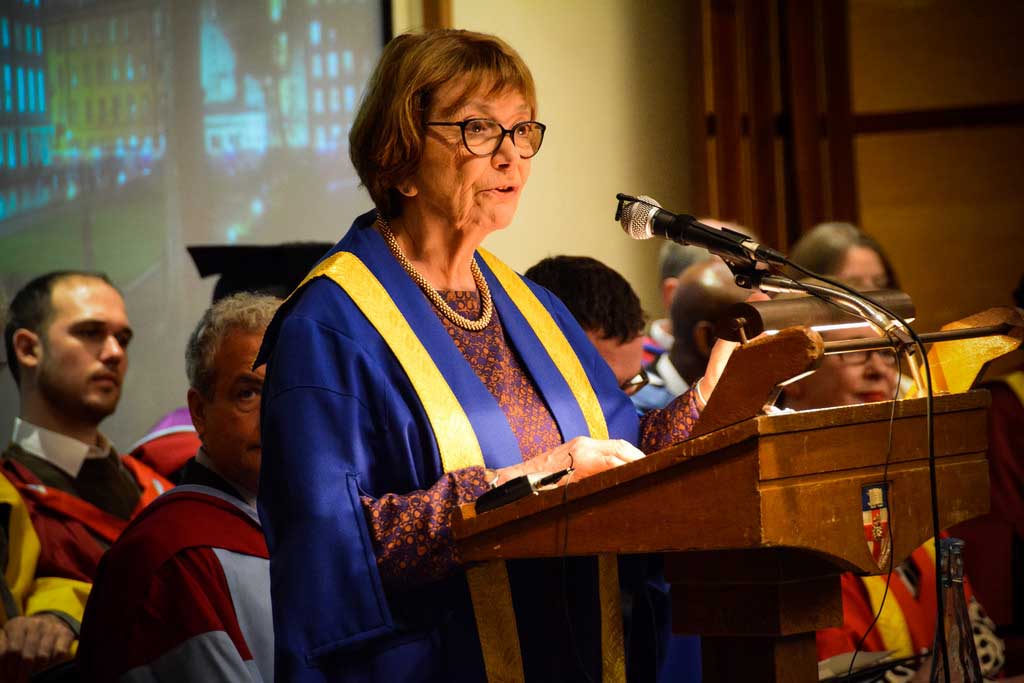Valquiria Godoy collected her BSc in Psychology with Neuroscience at Birkbeck’s Autumn Graduation Week 2017. She began her studies during an extremely difficult time in her life, coming to terms with the loss of her partner and bringing up a one-year-old as a single parent. It was far from plain sailing but with the support of family and Birkbeck staff, she has achieved great things. Here she tells her story:
I started at Birkbeck on the day of my son Victor’s first birthday. It had been a very difficult few months. Victor was just 40 days old when lost my fiancé Christian, six months before we were due to be married. He was working as a pizza delivery on a motorbike and lost control on a rainy winter day. He passed away at the scene with a neck injury. It still upsets me to this day, but I’ve learnt how to deal with my pain without letting it control me. A lot of my strength to get through it came from the fact that I had a purpose and a goal to become a good mother and provide for my child. I wanted to have a profession and a career so I chose Birkbeck.
I had finished my A-levels back home in Brazil and arrived in London when I was 18 in 2003. But I had to work and learn English before I could think of studying. I had discussed university with my fiancé and I was originally planning to start when Victor reached the age of two. But with the change of circumstances, I adapted my plans.
My first year was very tough as I was still breast-feeding and Victor was too young for the Birkbeck nursery but I got help with money towards childcare for him while I was at lectures. My cousin looked after Victor for me for the 1st year and later he stayed at the evening nursery. Friends and family helped during exam time (nursery was only for when I was at lectures) but my son was allowed to come into the Birkbeck library so I could study during his nap time.
At the end of year one I considered quitting because it was too tough to combine a young baby and studies. Also I had to pick-up my son from my cousin’s house around 9.30pm and I wouldn’t be home before 11pm. I felt quite guilty to be out at that time with a baby three times a week, particularly when I was given dirty looks from people on the street who obviously had no idea I was actually coming home from university.
I saw a psychologist for around two years because I was suffering from PTSD, depression and anxiety because of what I had been through. At the beginning of my second year at Birkbeck, I met with Mark Pimm (Birkbeck’s disability coordinator) to tell him I was finding it very hard to cope with it all and was thinking of leaving. He suggested I should apply for DSA to help me with my studies, and with his help I managed to continue, going home from Birkbeck nursery by taxi. Victor loved it at the nursery and he’s genuinely upset he’s not going to see the staff anymore!
I was also able to get someone to help me with extra tutoring and note-taking from my lectures which were a huge plus. I could only study and revise when Victor was sleeping really. It was hard to concentrate at the beginning, but the thought of what I was doing it for would make me keep going. I guess that was my way to cope with it all and wanting my son to be proud of me. The studies also kept my mind busy to avoid unwanted thoughts. I guess it made me feel like it was all worth it and gave me more of a purpose in life.
I’m now working in a secondary special education needs school in west London as a learning support assistant in West London, working with pupils with all sorts of conditions, cultural and socio-economic backgrounds. Next, I would love to try for clinical psychology or educational psychology but I know how competitive they are so my back-up plan would be a Master’s in an area of behaviour or well-being.
I’m not going to say it wasn’t hard and challenging because it was. However, what I can say for sure is that it was possible and I made it happen even when I doubted I could. I can’t thank everyone enough as I can proudly say I’ve finished my studies with a 2 (i) and I can’t wait to continue with studying again.


